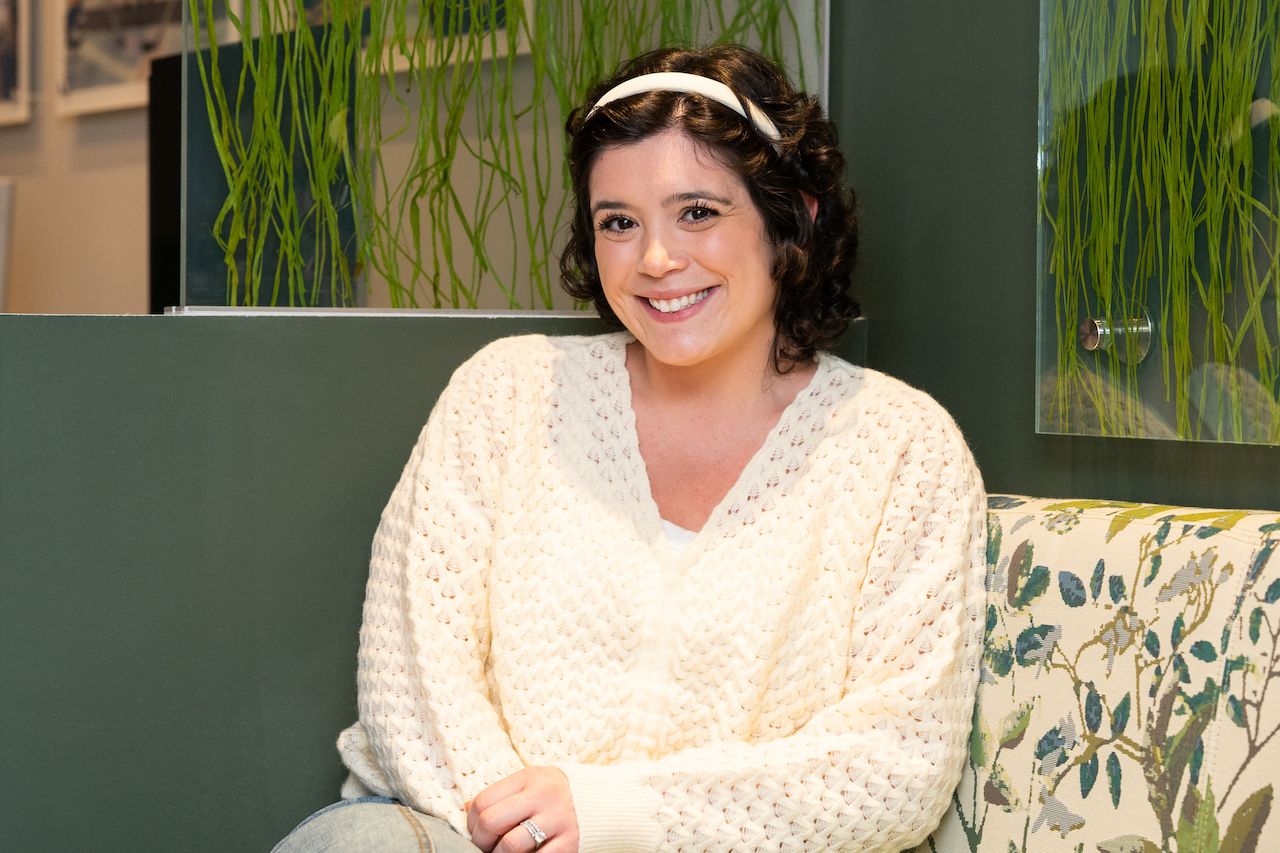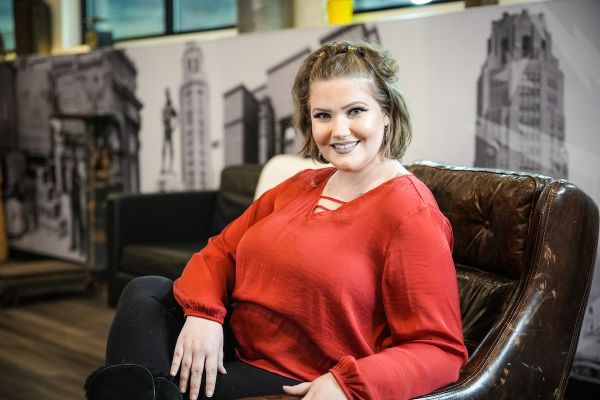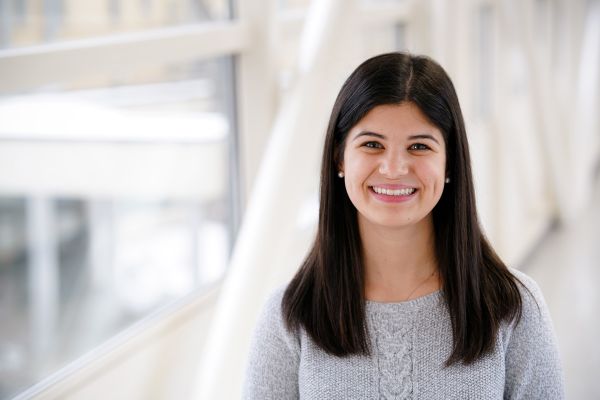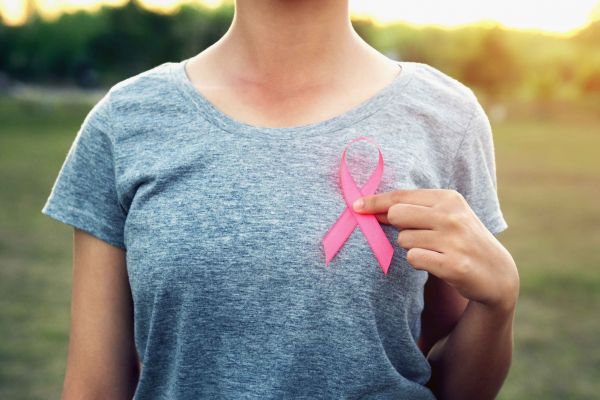Jenna Wier was no stranger to breast imaging when she walked into her appointment at Roswell Park Hematology Oncology Northtowns in the fall of 2021. The 26-year-old had already been regularly visiting medical oncologist Saif Soniwala, MD, FACP, and going through routine screenings for four years. This appointment in particular was delayed by a few weeks to accommodate Jenna’s wedding day and honeymoon; a carefree, joyful experience for which she says she’ll be forever grateful.
In your genes: a family history of breast cancer
Jenna’s mom was diagnosed with breast cancer at 46 years old, when Jenna was in high school. Thankfully, her mom completed her treatment, beat her disease and has been healthy ever since. Genetic testing helped to uncover why her mom had gotten cancer at such a young age. She had the BRCA gene and was genetically predisposed to have breast cancer.
In 2017, Jenna went through genetic testing and discovered she, too, had inherited the gene. In response to the results, she set out to make a plan. She didn’t have cancer, only a higher risk. She had time; she was going to get ahead of it. Jenna committed to taking the best care of her health she knew how. She diligently scheduled breast cancer screenings and decided as soon as she was done having children, she would look into a prophylactic double mastectomy in an effort to avoid cancer altogether.
Worried about your breast cancer risk?
Let us help you learn your personal cancer risk and what you can do about it — leave the worry behind.
Risk assessment formKnowledge is power
Unfortunately, cancer had other plans. She walked out of that first appointment as a newlywed, knowing the MRI found something. It might be nothing, she was told, but because of her genetic risk, her Roswell Park care team took a biopsy to be sure.
In October 2021, Jenna was diagnosed with stage 1b triple negative breast cancer. While an aggressive form of cancer, hers had been found early and hadn’t spread to her lymph nodes or anywhere else in her body. After six months and 16 rounds of chemotherapy, Jenna finished her treatment in April 2022.
“I’m so grateful to have known [about my genetic predisposition],” she says. “Who knows what would have happened? Knowing saved my life.” If her mom hadn’t gotten sick, if she hadn’t discovered her own genetic makeup, Jenna would have been completely blindsided by her cancer.
Getting back to normal
Jenna, now 27, and her husband Chris are doing their best to get back to some sense of normalcy. After months of wigs and hats from The 11 Day Power Play Cancer Resource Center, her hair is growing back — curly, which is new. She’s also back to work as an occupational therapist for kids. She is starting to feel like herself again after one of the most difficult times of her life, holding onto hope that she will eventually feel that this is all behind her.
Editor’s Note: Cancer patient outcomes and experiences may vary, even for those with the same type of cancer. An individual patient’s story should not be used as a prediction of how another patient will respond to treatment. Roswell Park is transparent about the survival rates of our patients as compared to national standards, and provides this information, when available, within the cancer type sections of this website.



